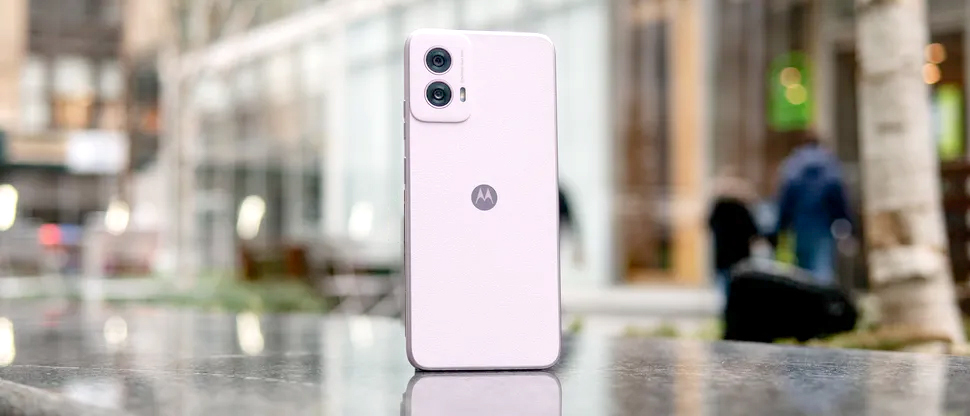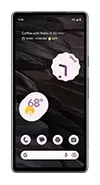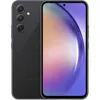Tom's Guide Verdict
While it comes with compromises, the Moto G Power (2024) is still hard to beat at under $300, primarily for its long lasting battery. We also like the unique vegan leather design and fast charging. But the dim display and lackluster cameras are strikes against this budget phone.
Pros
- +
Excellent battery life
- +
Grippy vegan leather casing
- +
Ultra affordable cost
- +
Fast charging speeds
Cons
- -
Dim screen
- -
Subpar camera performance
- -
Annoying bloatware out of the box
Why you can trust Tom's Guide
Not everyone fancies getting super advanced flagships. Sometimes it’s simplicity and affordability that takes precedence, which is what to keep in mind when scoping out the best cheap phones around. The Moto G Power (2024) makes a strong argument in being part of that conversation, complete with a beefy battery, sophisticated design, and boosted specs over last year’s version.
I’ve spent time using the Moto G Power (2024) to see if has enough value to steer people away from other sub-$500 priced phones new to the market — like the recent Nothing Phone 2a, which I still think offers one of the best values in a phone under $500.
In my Moto G Power (2024) review, I’ll tell you if it offers enough value at the even better sub-$300 cost. This price range gets tricky because the compromises become more apparent.
Moto G Power (2024) review: Specifications
| Row 0 - Cell 0 | Moto G Power 5G (2024) |
| Price | $299 |
| Display | 6.7-inch LCD (2400 x 1280) |
| Refresh rate | 120Hz |
| Rear cameras | 50MP main (f/ 1.8), 8MP ultrawide (f/2.2) |
| Front cameras | 16MP (f/2.4) |
| Chipset | Dimensity 7020 |
| RAM | 8GB |
| Storage | 128GB, plus up to 1TB micro SD |
| Battery | 5,000 mAh |
| Charging | 30W wired, 15W wireless |
| Software | Android 14 with My UX |
| Size | 6.58 x 3 x 0.33-inches (167.22 x 76.44 x 8.50mm) |
| Weight | 7.09 ounces (201g) |
| Colors | Midnight Blue, Pale Lilac |
Moto G Power (2024) review: Price and release date
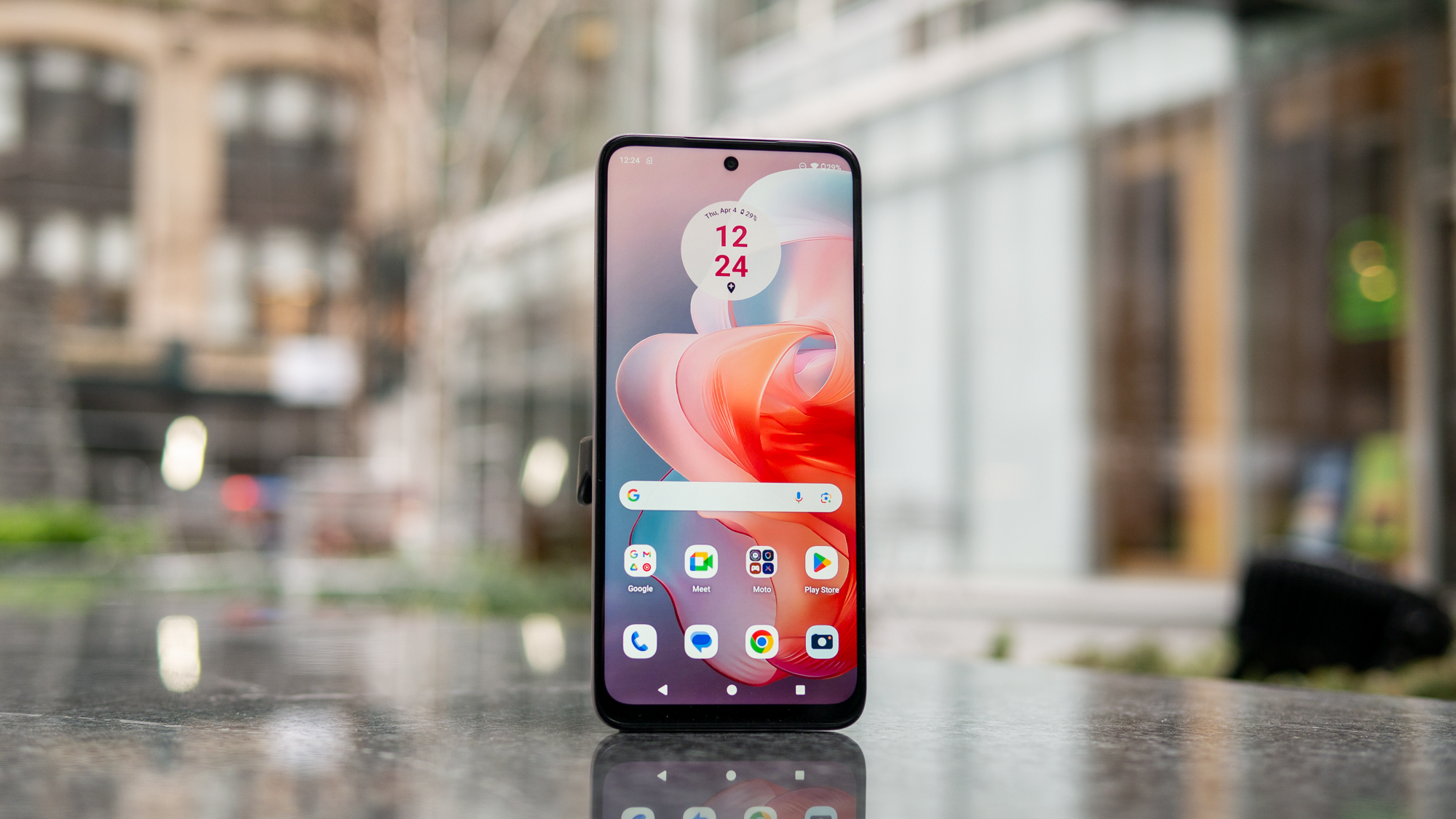
Announced mid-March, the Moto G Power (2024) went on sale on March 21 through wireless carriers like T-Mobile and Metro. If you prefer an unlocked model, you can pick it up for $299.99 directly through Motorola and Amazon.
It only comes in a single storage option, 128GB, and available in your choice of midnight blue or pale lilac. Sure, the options are limited compared to flagships, but this is typical for most budget phones.
Moto G Power (2024) review: Design
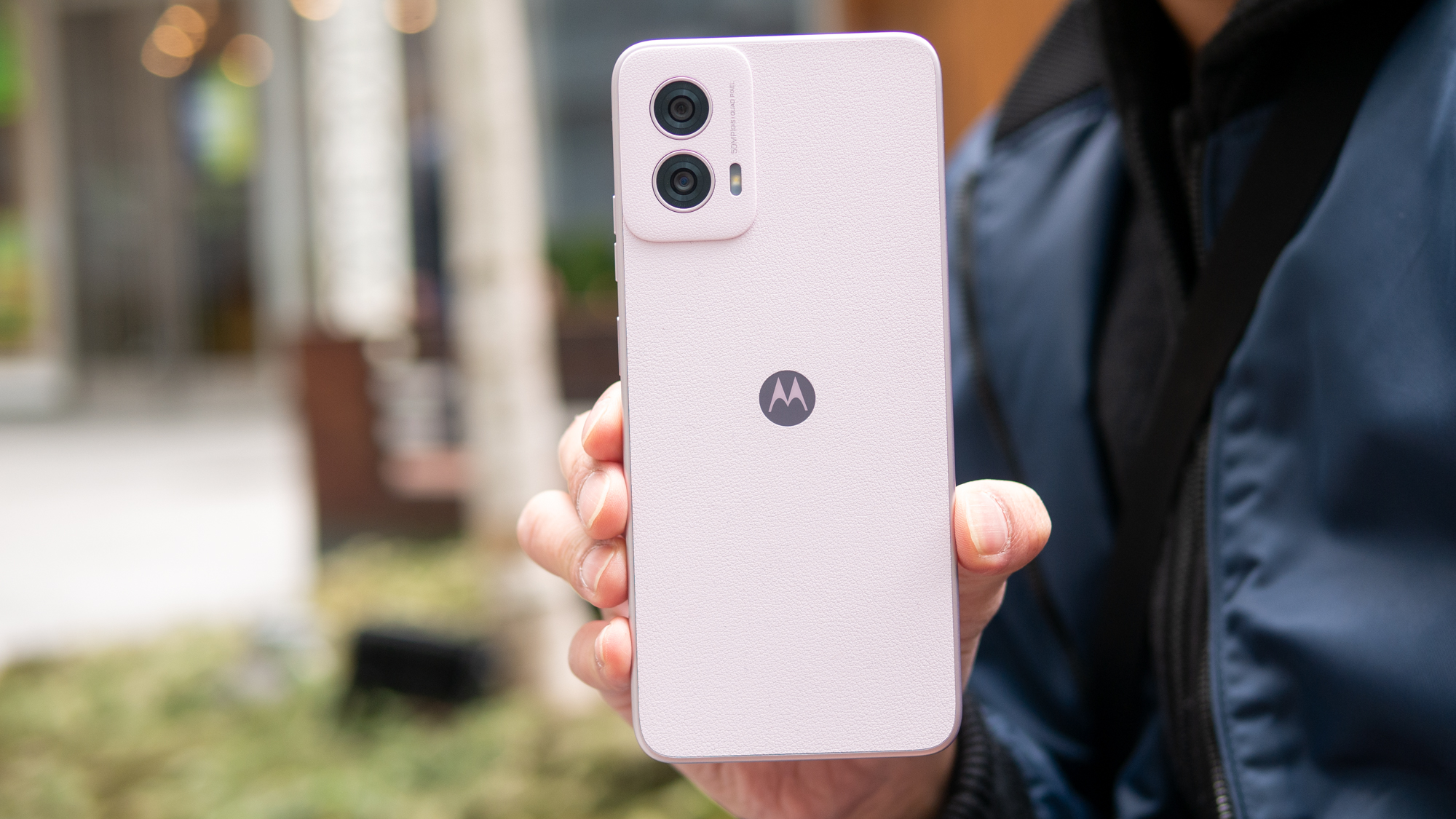
My expectations about designs in cheap phones have been spoiled by the Nothing Phone 2a, but the Moto G Power (2024) hits all the marks nicely. Most notably, I really like the vegan leather back casing of the phone, which adds that ‘just right’ grip to comfortably hold the phone — while also retaining a cleaner look.
I really like the vegan leather back casing, which adds that ‘just right’ grip to comfortably hold the phone.
One of the biggest surprises about the design of the Moto G Power (2024) is it includes a 3.5mm headphone jack, a much forgotten thing now that we’ve fully embraced the best wireless headphones for our music listening needs. Even though I’m unlikely to use it, others could find it handy in other circumstances when a wired connection is absolutely necessary. And while it technically can’t withstand submersion, Moto applies its usual water-repellent design that protects it from moderate exposure to spills and splashes.
Get instant access to breaking news, the hottest reviews, great deals and helpful tips.
Sure, it’s nowhere as flashy or fancy, but I think it does nicely to inject a hint of sophistication to an otherwise generic design.
Moto G Power (2024) review: Display
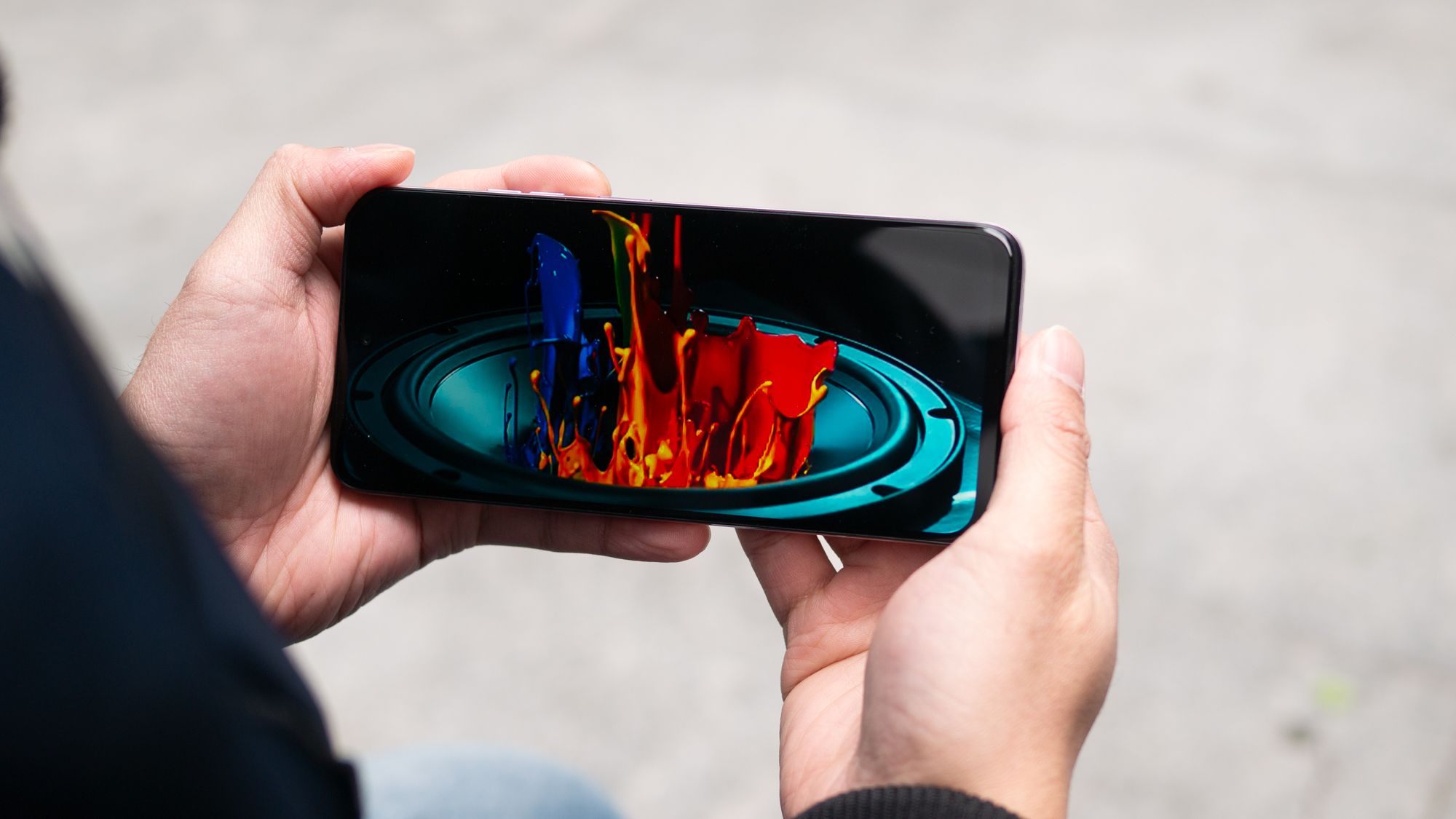
A big change to this year’s Moto G Power model is an upgrade to a 6.7-inch full HD+ display, up from its predecessor's 6.5-inch size. It gets the job done, but the most distracting quality in my experience is its weak brightness output — making it nearly impossible to enjoy a show or movie outdoors with the sun beating down on it.
My suspicion turned out true after properly running it through Tom’s Guide’s usual barrage of display tests, which reaches a peak brightness of 586 nits. That’s underpowered and the culprit behind its dim look. But beyond that, I wasn’t convinced either by how its poor viewing angles often distorts the screen at slight angles.
| Row 0 - Cell 0 | Max brightness | sRGB | DCI-P3 | Delta-E (lower is better) |
| Moto G Power (2024) | 586 nits | 105.8 (Natural) / 122 (Saturated) | 74.9 (Natural) / 86.5 (Saturated) | Row 1 - Cell 4 |
| Nothing Phone 2a | 990 nits | 147.1 (Alive) / 118.3 (Standard) | 104.2 (Alive) / 83.8 (Standard) | 0.22 (Alive) / 0.23 (Standard) |
| Pixel 7a | 1,024 nits | 129.8 (Adaptive) / 111.7 (Natural) | 91.9 (Adaptive) / 79.1 (Natural) | 0.05 (Adaptive) / 0.11 (Natural) |
| iPhone SE (2022) | 596 nits | 114.7 | 81.2 | 0.21 |
I will give it to Motorola for upgrading the Moto G Power (2024) with a 120Hz refresh rate, a quality I didn’t expect to find in a sub-$300 phone. For the most part, it does deliver a fluid look navigating around the interface, but that’s about it because I don’t see the same benefit with games. I just still can’t get over its dim look and poor viewing angles.
Moto G Power (2024) review: Cameras
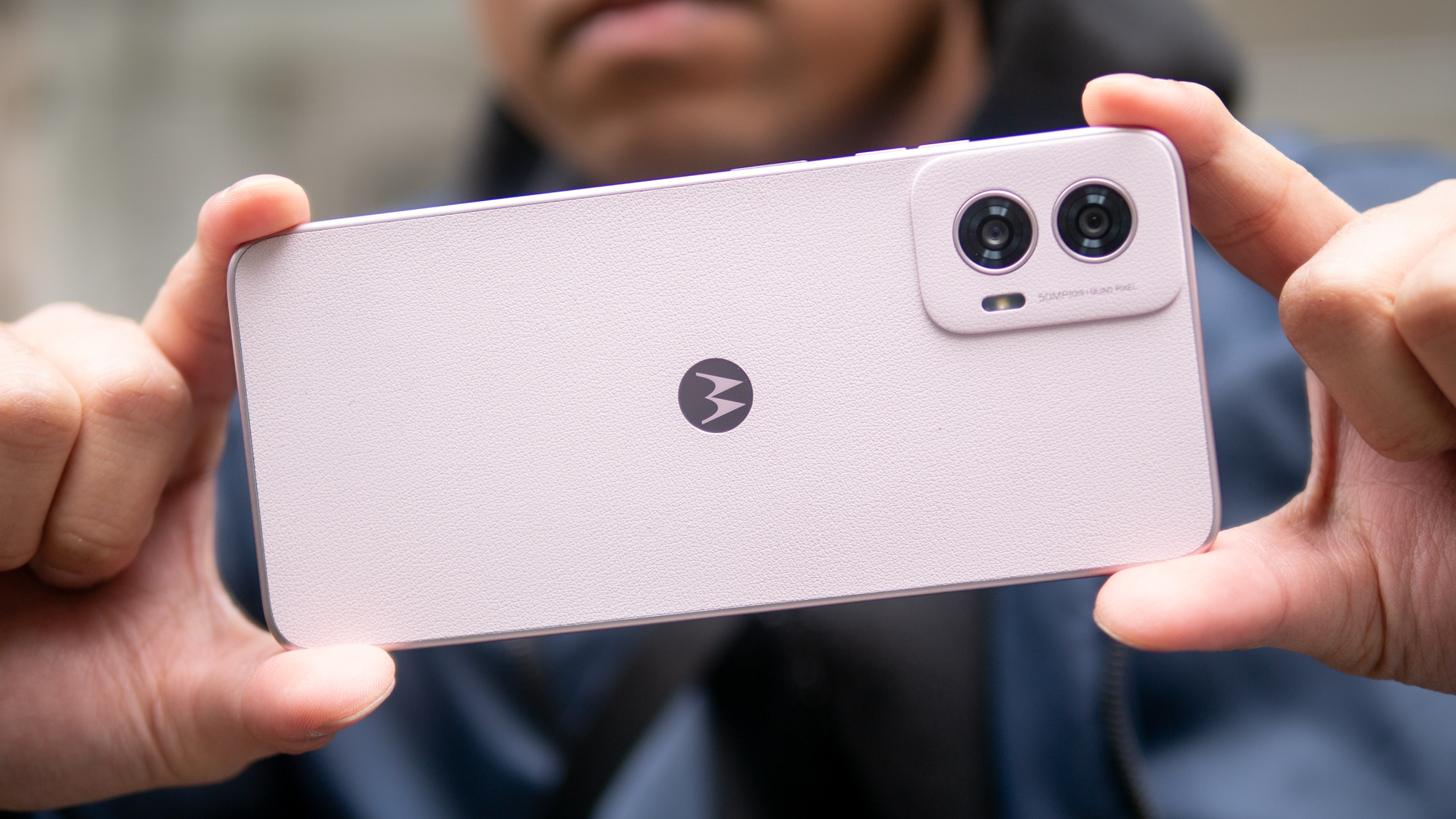
Armed with a dual camera setup that consists of a 50MP f/1.8 main camera paired with an 8MP ultrawide with macro, I was hopeful that the Moto G Power 2024 would produce decent shots. The camera interface has your standard set of modes, but I do like how it’s packaged with a Pro mode that lets me dial in the camera’s settings manually — like the shutter speed and ISO level.
Although it’s been a while since I last used a Motorola phone, I’m happy that it’s kept the same double twist gesture to quickly launch the camera even when the phone’s locked. As for the performance of the cameras? Well, it leaves a lot to be desired
Quite frankly, the main camera produces softer details than what I get out of the Nothing Phone 2a, but what’s more distracting is how colors look extremely subdued. You can see it in the shot above with the Citi Bikes lined up, as the oranges and yellows in the background appear more tepid in tone. I also notice its weaker dynamic range performance, which is evident in how the highlights look a bit more over-exposed than the rest of the shot.
These distracting qualities are also evident with its 16MP selfie camera. I look a bit more pale looking in the selfie shots above with the Moto G Power (2024), while the Nothing Phone 2a produces a more true-to-life tone. There’s also less definition in the polo shirt I’m wearing with the Moto’s shot.
I really thought it would be better at macro photography than the Nothing Phone 2a, but it isn’t. In every macro photo I captured between the two, the Moto G Power (2024) doesn’t look as sharp. Although, I do like how it pulls in details without causing other areas of the shot to become out of focus. The real problem is that the overall shot looks flat.
Under low light, I wasn’t surprised by the Moto G Power 2024's dismal performance. I’ll admit that the Nothing Phone 2a is handicapped in this area as well, but it still manages to pull in more detail of my detached garage in nearly pitch dark conditions. There’s simply too much noise with the Motorola, but it doesn’t help either when the details are smudgy looking.








Few budget phones ever wow me with their camera performance, especially under low light. The Moto G Power (2024) doesn't win any awards here. I will say it's passable for most situations when the lighting is good if you're not pixel peeping, like some of the images I captured above in the gallery. However, I would stay away from anything low light.
Video recording on the Moto G Power (2024) tops out at an 1080p 60fps, which I suppose is fitting for a phone of this caliber. I was hoping for maybe 2K recording at most. I would’ve been content with the resolution, but the footage I captured didn’t have a whole lot to convince me. Again, it’s softer looking than I’d get from any of the best camera phones I’ve tested, but what makes it worse is its shakiness despite having software-based stabilization. And lastly, the audio it records has such a distorted tone to it.
Moto G Power (2024) review: Performance
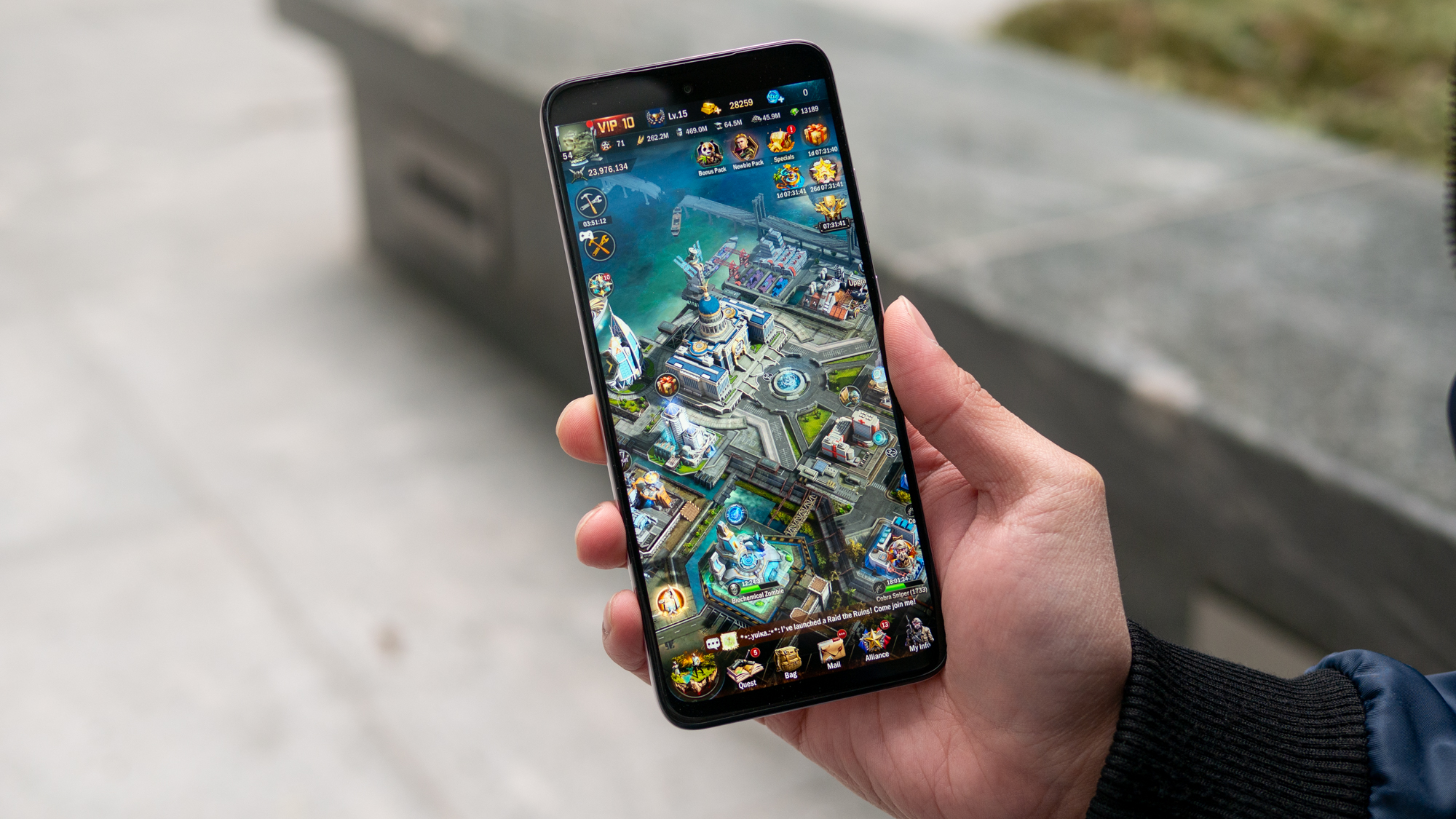
The world map in Age of Origins just crawls trying to navigate around, despite setting the phone into Turbo for games specifically.
It might have power in its name, but it has no bearing on this phone’s processing performance. There’s a Dimensity 7020 chip under the hood paired with 8GB of RAM, which handles your usual basic functions with ease. Navigating around the interface is fine and all, but the Moto G Power (2024) clearly doesn’t have the same level of responsiveness against other budget phones like the Pixel 7a.
Synthetic benchmark tests make it abundantly clear it’s underpowered with Geekbench 6 single and multicore scores of 924 and 2,334 respectively. In comparison, the Nothing Phone 2a has scores of 1,103 and 2,586 — but it benefits from a better MediaTek Dimensity 7200 Pro chip.
| Phone | Geekbench 6 (single/multi-core) |
| Moto G Power (2024) | 924 / 2,334 |
| Nothing Phone 2a | 1,103 / 2,586 |
| Pixel 7a | 1,401 / 3,368 |
| iPhone SE (2022) | 1,718 / 4,482 |
Budget phones are capable of running games, but I’ve seen better performance from other phones because it’s incredibly choppy with the Moto G Power (2024). The world map in Age of Origins just crawls trying to navigate around, despite setting the phone into Turbo for games specifically.
I can’t share any 3DMark test results because the phone doesn’t support the Vulkan features needed to run them, but Basemark OpenGL has its performance rated at 33.87 frames per second. That’s half of what the Nothing Phone 2a delivers running the same test.
Moto G Power (2024) review: Battery life and charging
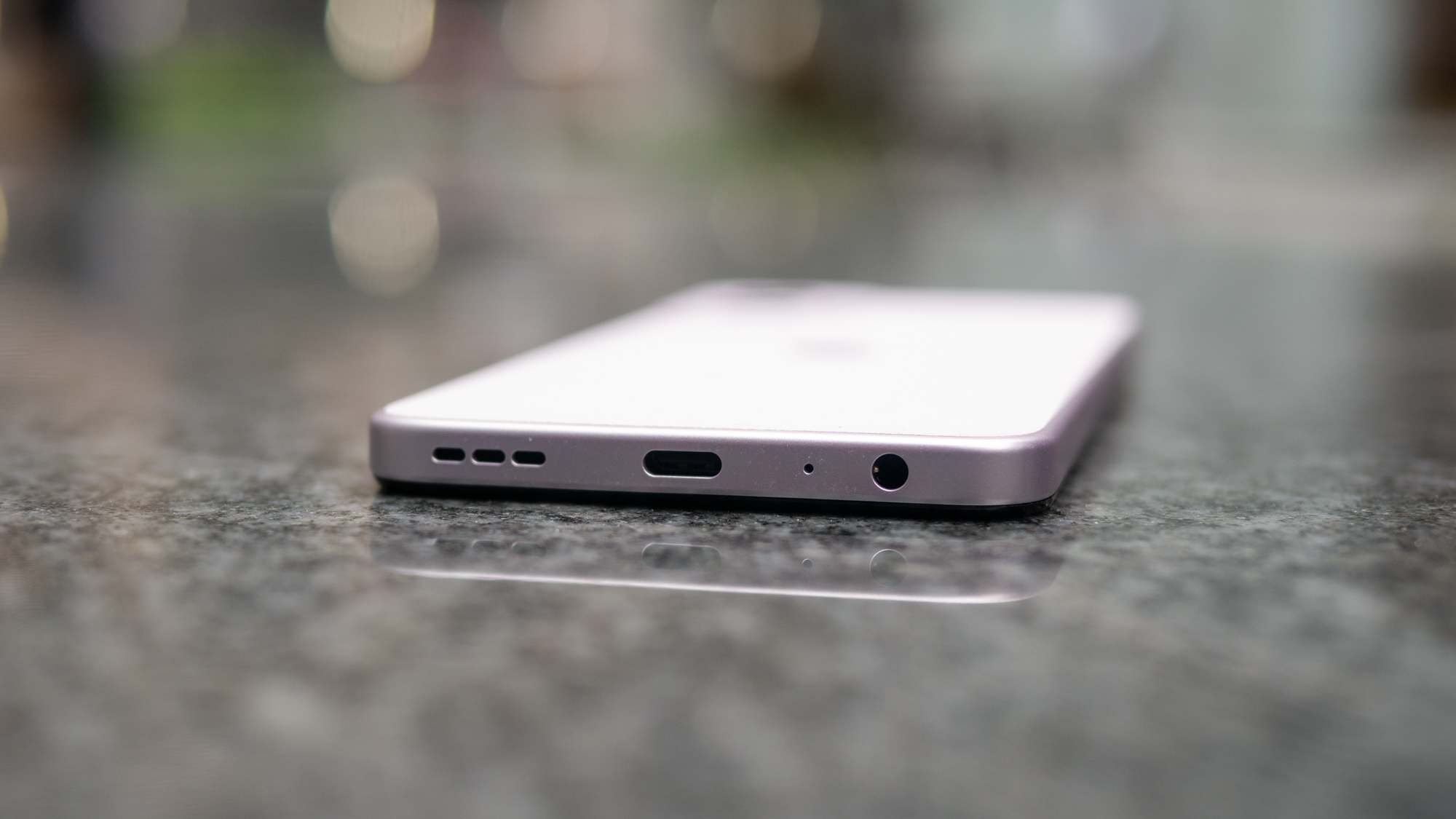
If there’s one area that delighted me most about using the Moto G Power (2024), it’s the long lasting battery life courtesy of its 5,000 mAh cell. Long battery life is more of a luxury in this price range, but I’m happy to say this Android phone has the best phone battery life under $300.
In running Tom’s Guide’s battery benchmark test, the Moto G Power (2024) achieved an average time of 13 hours and 16 minutes with the display set to auto — where its adaptive refresh rate will change to make it more power efficient. I’m also satisfied that it gets me through an easy work day without having to recharge it, with about a 20% charge level before bedtime.
| Phone | Battery size | Battery life (Hrs:Mins) |
| Moto G Power (2024) | 5,000 mAh | 13:16 (auto) |
| Nothing Phone 2a | 5,000 mAh | 15:00 (120Hz) |
| Pixel 7a | 5,500 mAh | 10:05 (60Hz) |
| iPhone SE (2022) | N/A | 7:38 |
Charging speeds with the Moto G Power (2024) are also good, getting to 28% in 15 minutes and then to 53% in 30 minutes. These are fast charging speeds I didn’t expect to have in a budget phone, but it helps when it features 30W wired and 15W wireless charging. The icing on the cake is that it comes with a 30W charger in the box.
Moto G Power (2024) review: Software
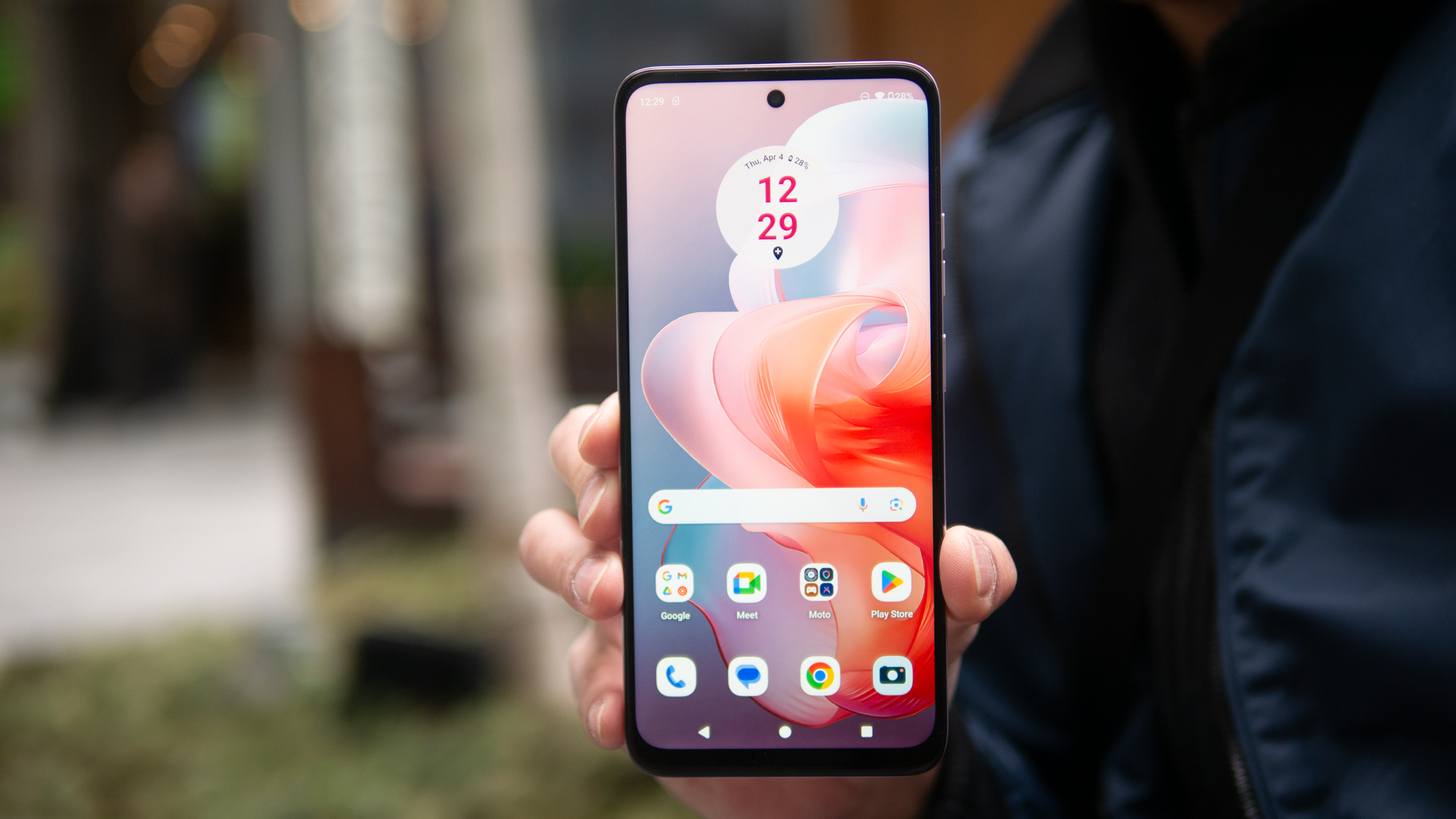
Running Android 14 out of the box, I like that the Moto G Power (2024) still bears many of the Motorola features I’ve been acquainted with over the years — like the various gestures it supports. I’ve already mentioned the double twist motion to launch the camera app, but there’s also the double chopping motion to instantly turn on the flashlight and double tapping the back to trigger a custom function.
I know people will be bothered by the bloatware that’s packaged into the phone, which inevitably sprinkles in advertisements. Unfortunately there’s no way to manually delete these ads-filled Moto apps from the phone, but at least there’s an option to disable them.
Besides that, there’s nothing out of the ordinary with the software apart from mentioning that Motorola promises just a single Android update for it. That means it would likely get upgraded to Android 15, but nothing beyond that. It’s a bummer for anyone intending to use the phone for much longer. However, it will come with 3 years of security updates.
Moto G Power (2024) review: Verdict
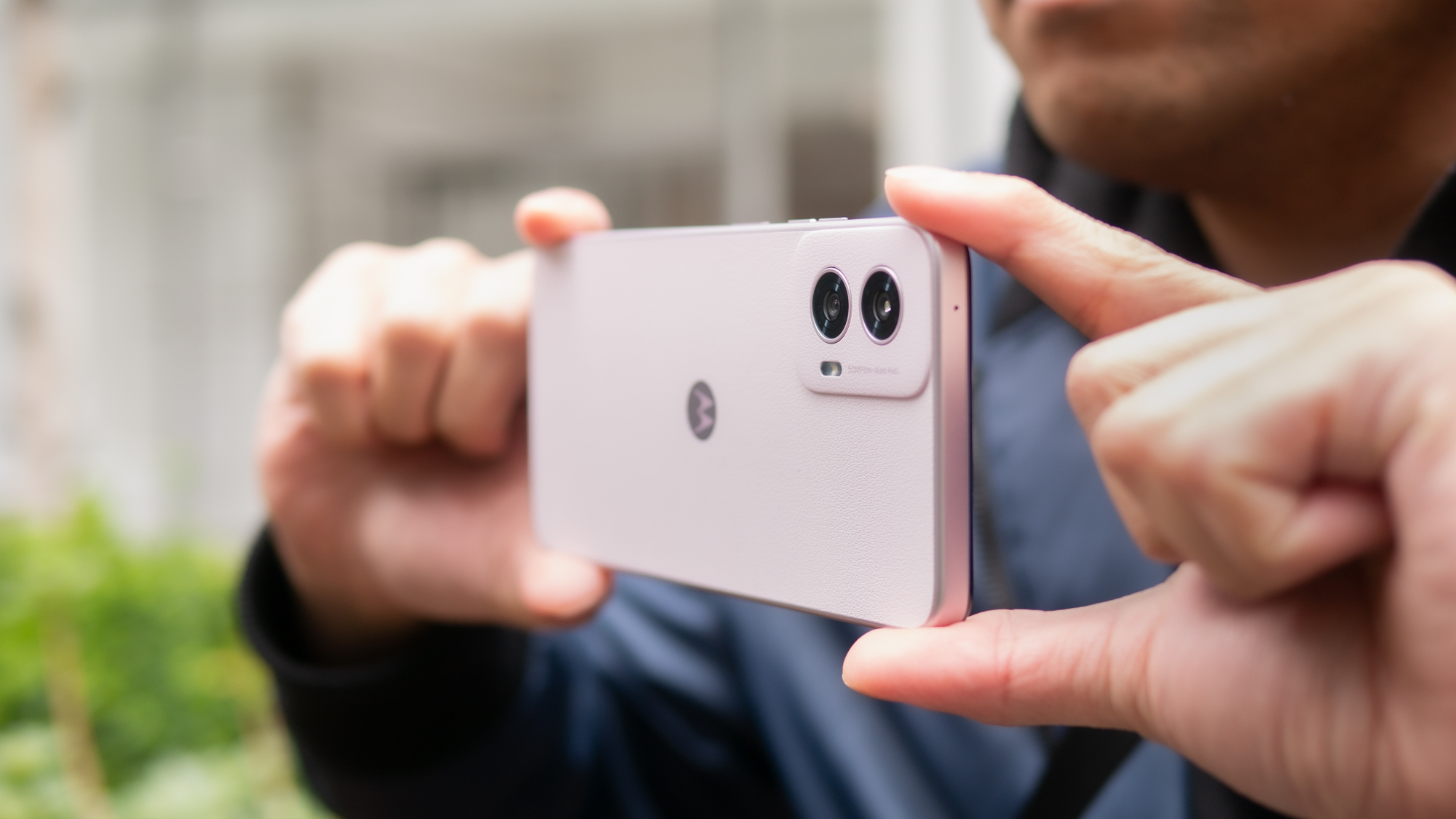
Budget phones exist because people looking into them are willing to accept compromises. The Moto G Power (2024) isn’t a home run for a phone in the budget space, it has its share of compromises — like its dim display, so-so cameras, lackluster gaming performance, and limited software support. But hey, it has the best phone battery life under $300, fast charging abilities and a sophisticated design that’s surprisingly well built.
The Nothing Phone 2a would be a logical recommendation of mine, but it’s yet to be publicly available in the U.S. Instead, it can only be purchased through its developer program. Therefore, the next practical option is the Google Pixel 7a, but then you’re forced to spend a lot more over the Moto G Power (2024). Knowing all that, Motorola’s phone is worth considering assuming you can live with the aforementioned trade-offs.
More from Tom's Guide
- iPhone 16 Pro Max — 7 biggest rumored upgrades
- 21 best Apple CarPlay apps every driver needs
- iOS 18 reportedly 'biggest' update in history — 9 features coming to your iPhone

John’s a senior editor covering phones for Tom’s Guide. He’s no stranger in this area having covered mobile phones and gadgets since 2008 when he started his career. On top of his editor duties, he’s a seasoned videographer being in front and behind the camera producing YouTube videos. Previously, he held editor roles with PhoneArena, Android Authority, Digital Trends, and SPY. Outside of tech, he enjoys producing mini documentaries and fun social clips for small businesses, enjoying the beach life at the Jersey Shore, and recently becoming a first time homeowner.





